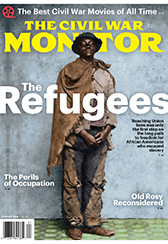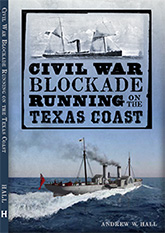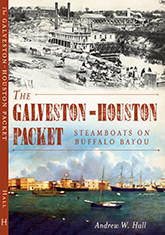Looking for Buster Kilrain’s Grave
 Is Michael Shaara’s The Killer Angels the most influential Civil War novel since Gone with the Wind? Sure seems like it must be. Like GwtW, it won the Pulitzer Prize for fiction; like GwtW, its was made into a huge, sweeping screen spectacle. (Though Gettysburg never approached the critical or commercial success of its predecessor.) Virtually everyone, it seems, has read it; almost single-handed, it’s elevated Joshua Lawrence Chamberlain into the upper echelon of popular heroes of the battle.
Is Michael Shaara’s The Killer Angels the most influential Civil War novel since Gone with the Wind? Sure seems like it must be. Like GwtW, it won the Pulitzer Prize for fiction; like GwtW, its was made into a huge, sweeping screen spectacle. (Though Gettysburg never approached the critical or commercial success of its predecessor.) Virtually everyone, it seems, has read it; almost single-handed, it’s elevated Joshua Lawrence Chamberlain into the upper echelon of popular heroes of the battle.
So here’s a question — how has the success of The Killer Angels shaped perceptions of the battle and the war for the public, for better or worse? What has it done well, and what badly?
Or is there another novel we should be talking about here?
______________






My great, great, grandfather was Capt. Alfred Alexander Miller, CSA,, of Franklin/Zeb, Rowan County, N.C.; killed at the Battle of Fredericksburg. His brother was Lutheran Rev. Martin Monroe Miller, Pvt. CSA; also of a North Carolina unit.
Before the Civil War, Rev. M. M. Miller had attended the Lutheran seminary at Gettysburg. I don’t know exactly what his unit did at the Battle of Gettysburg; but I’ve long wondered what he thought intellectually, and felt emotional–likely in the heat of the Battle of Gettysburg; in contrast to his once peaceful previous Christian, “You are your brother’s keeper”, earlier experience there; vs. the fire and flame of now, “You are your brother’s killer, and maimer”? And your Yankee Christian “brother”, intending inflicting the same on you.
After the war, Rev. M. M. Miller would become the pastor of the “Old Deutsche” church, Rural Hall, N.C.; and Capt. Miller’s orphaned son; Lutheran Rev. John Abner Locke Miller, would follow his uncle as pastor there. When my late father, James Alfred Locke Miller, Sr., was a communicant there, I gave a brass plate listing the Revs. Miller, and about 50 other once pastors at this wee, once colonial, historic church.
That’s a pretty remarkable story. It looks like Rev. Miller was wounded at Gettysburg, taken prisoner and later paroled, and still later applied to the chaplain’s posting. You have his compiled service record, yes?
I’ll be interested to hear what others say about this book – and in a wider context, this battle. I read it too many years ago to make a useful contribution. I remember it as being “everyone’s so honourable and war’s so sad”. Although I must admit I read it shortly after touring the battleground – and it helped me make sense of the geography of the Battle.
On a related note Andy, is Gettysburg generally acknowledged by scholars to be the turning point in the War?
No, I’ve never seen Rev. M. M. Miller’s Civil War record. He is in the N.C. (Salisbury) Lutheran Synod’s book of early Lutheran ministers, as is Rev. Locke Miller. Mayor Lentze of (1940’s?) Winston-Salem, of Lentze Storage and Transport, was his descendant. Rev. M. M. Miller I think wed a Winkler girl born over the Winkler Moravian Bakery, Old Salem, N.C.; one of her many husbands. Other siblings Pvt. Wm. Wesley Miller, Sgt. Henry Graeber Miller (in Cabarras Co., N.C., unit where the Millers were originally from prior to Rowan Co., Dutch Buffalo Creek’s Sossaman-Miller-Foil mill) , sister Susan Rebecca Miller was the first wife of Rowan CSA Militia (later private in regular service) “Squire”, Capt. Abner Leander Hall, CSA. After the war, I read that their uncle, the former Capt. Eli Propst (1857-1889?) had more US dollars in Rowan County than anyone else. A slight surprise.
I first heard about Killer Angels in 1981, shortly after I learned that my great grandfather had been a private in the 13th Mississippi Infantry Regiment. I was visiting a fellow in Jackson who worked at the state archives and I mentioned the 13th being part of Barksdale’s Brigade. He got the book out for me and found the page references to the brigade’s charge late on the second day.
I eventually read the novel and enjoyed it. But I still think the best CW battle novel, which I read sometime after KA, is Foote’s “Shiloh.”
But KA is good stuff. It’s one of the few I’ve seen that puts Barksdale on foot in the charge instead of on horseback which never made much sense to me given the weapons of the day. Since then I’ve read enough to agree with Shaara that B probably was on foot. And I’ve read much more about the brigade and the regiment. So, in a sense, it all started for me with Killer Angels.
Thanks very much. It’s good the have a writer’s perspective on it.
Andy,
The book made me aware of the tragedy of the Civil War and made me want to study it more.
In that, I appreciate it and consider it a great jumping off point for more research on that period.]
Sincerely,
Neil
The greatest aspect of the “Killer Angels” is also its most serious deficiency – the technique of using the actual characters, speaking first hand as they account in detail, using on the spot spoken words, to describe what they were doing/thinking in real time as the action unfolds.
This is made more clear with Lee in the book – while everyone (that in my very limited reading, I’ll have to admit) accounts for Lee’s terrible blunder of his attacks at Gettysburg as Lee’s mistaken (but partly justified, supposedly, in Lee’s own eyes) belief that the Southern troopers could win any battle no matter the opponents numbers/terrain, and this (to me) so-called accepted fact is used in the book to great effect but in reality, this explains nothing on the truth on the subject (first, as the real historical record proves, Lee was far from a great general he is painted in any true sense of the word – but that is another subject that is not germane to this discussion) – the net result of this “first person account achieves just the opposite of what the reader ends up really believing – rather than painting the real actions of the day, it is utter fiction and very unlikely to be correct in the sense it is given. Any time an author provides “absolute fact” to motives/reasons that in reality have little to no bases in the historical record, there is a great danger the reader will not realize this failing.
It does work well with the myth making of Lee – a great general who got caught up in his troops (and even his own according to the book’s Lee) superiority. Using this example, I realize that all the characters in the book that appear so real have this same historical fact sense – yet all it is, in reality, is our own projection of our beliefs (or maybe just our desire for a belief) rather than what these people were really thinking and which really caused them to do or act as the history did plat out – as most should realize, this is something that is very, very hard to determine (even from first hand accounts when written well after the fact by those same people) and worse, for the vast majority of soldiers, an impossible feat to achieve but none-the-less we get this account from all soldiers the author presents in first person in the tale.
What nonsense. While this writing style does make for great and even fun reading and may, and I use this term with more belief than maybe it deserves, ‘may’ give insight to the feelings/actions of soldiers in that war it more than likely is just continuing false beliefs and making the reader believe this as unshakable fact. That is a dangerous and very fatal error in anything book that uses such a simplist device (only sperfical understanding is required by the author and using his own culture based beliefs, converts the historical characters into “living, breathing” characters that the reader mistakenly takes as gospel … .
I’m headed to Gettysburg later this week for the fourth consecutive summer. The evolution of the park is a fascinating story in and of itself. In the early twentieth century Culp’s Hill was one of the most visited sites in the park; today it is one of the most neglected. Since the novel’s publication in 1974 and especially since the film adaptation in 1993, visitors go primarily to Little Round Top.
Quick story: Until recently I was a volunteer with the NPS at Ellis Island. People would ask every day to see the log book that immigrants supposedly signed when they came through the immigration station. The thing was there was no such book in real life. It was from a scene in the Will Smith movie “Hitch.” Every time I got asked where the log book was, I would think of the people who look for Buster Kilrain on the 20th Maine monument.
KA is great historical fiction, and has, probably more than any other book, been responsible for peaking people’s interest in the battle and in Civil War history in general. Getting people interested in history is always a good thing. However, KA has to be viewed in that light…fiction. People have tended to accept much of what is in KA, and the subsequent movie, as fact. This only hurts the real stories portrayed in the book. Gettysburg Daily’s (http://www.gettysburgdaily.com/?p=7297) Garry Aldeman did a wonderful video series on just this topic. He explored the myths of Little Round Top, and how its role in the battle has become legend over the years.
Like Keith, I used to do volunteer work for the NPS. In my youth, I spent much of my summers at Gettysburg, Manassas, and Antietam interacting with visitors. They were often times surprised to find out that what they had read in historical fiction books wasn’t always real or accurate.
Martin, thanks. I’m familiar with some of Adelman’s work at Gettysburg Daily, but i missed that particular series. I’ll have a look:
http://www.gettysburgdaily.com/?page_id=7161
Fiction is just that fiction ! However, if such a novel moves you to look deeper into the actual events inspired by the novel so much the better. The tragedy of the book and movie is that a lot of people treated it and the characters in it as gospel. They never looked any further. My reading of KA was shortly after I first visited GB as a one day stopover coming up the Valley after a road trip to the Great Smokies. It was in all the stores and came highly recommended. We did the bus tour and other normal sites (except for the damn tower !!). At some point my girlfriend mentioned that there was something in my family history that mentioned GB. My maternal Grandmother had tracked us back through GB & Bunker Hill to the Mayflower. It was a great surprise to find a cousin that was in the 20th Maine with a notation that he had been killed on the 2nd of July, 1863 at GB. Needless to say, I’ve been back more than a dozen times in the intervening years, have a very large CW library and, as you can see from my presence here, a continuing interest !
I don’t have the breadth of knowledge of how perceptions of Gettysburg have changed over time to answer your question, but I can throw another book at you for consideration. Have you seen Stand Firm Ye Boys from Maine? It’s a microhistory of Chamberlain’s unit and its actions before, during, and after the big battle. It does a great job of de-emphasizing the significance of the 20th Maine’s actions in a way that makes the common soldier of the Civil War even more impressive. The battle might not have been lost, even if the 20th had broken, and the battle might well have been lost if any of a lot of other units had given in. There was a hell of a lot of heroism to go around on that hill, and all across that battlefield, and all through that war.
When I was a teenager we would stop every Sunday on the way home from Mass to buy the New York Times. I always grabbed the sports section and the book review section before my dad. I remember reading a review of a new book called The Killer Angels and mentioning it to my dad. I believe thsi would have ben about 1974 (yup, intertube search just confirmed that)We discussed it and then did what we usually did when we saw books we wanted to read….we went to our local branch of the DC public library and put in a request for the book. About 3 weeks alter we got a postcard telling us the book was in. I was not much for ACW reading…mostly I focused on World War 2. But I devoured that book. It didn’t totally turn me away from World War 2 to the ACW (a stint in the 19th Infantry did that!) but it is the first book not written by Bruce Catton that I read about the ACW…and I bought my own copy as a 16 year and read it every year or so for quite some time.
About that time I also rememebr placing a request card for A Bridge Too Far…damn, I miss those kind of library services!
A Bridge Too Far got me hooked, too, although it was after I saw the film version.
Alfred Alexander miller memorial
http://www.findagrave.com/cgi-bin/fg.cgi?page=gr&GSln=Miller&GSfn=Alfred&GSmn=Alexander&GSbyrel=all&GSdyrel=all&GSob=n&GRid=65407307&df=all&